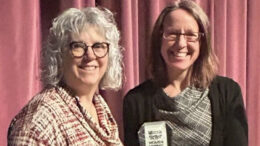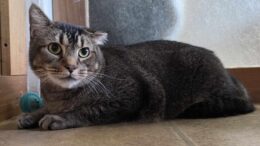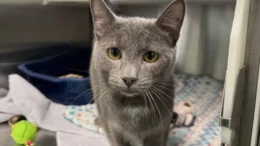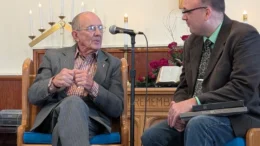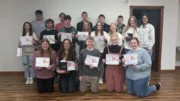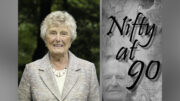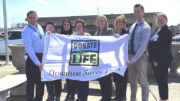PARKMAN, Maine (AP) — The converted turkey coop that a co-founder of Burt’s Bees once called home in Maine is going to be saved and displayed at the company’s headquarters in North Carolina.
Burt’s Bees has bought the structure where Burt Shavitz once lived and has moved it to Durham, where it’s going on display this fall.
“It’s a legacy project. It’s going to be maintained so that people can see it and appreciate it,” said Trevor Folsom, Shavitz’s former personal assistant, who inherited the structure. “I just felt that it should always be taken care of, no matter what.”
The 300-square-foot shelter with no running water is where Shavitz lived before finding fame through Burt’s Bees. He ended up back there when his house was damaged by fire in February 2015.
Shavitz, who died in July 2015, went from a hippie making a living by selling honey into a corporate icon after a chance encounter with a hitchhiking Roxanne Quimby led to a partnership that became Burt’s Bees. An image of Burt’s face — and his wild beard — was featured on labels.
But fame never suited him. He preferred his reclusive life in Maine, where he returned when their business partnership soured after Quimby moved the company from Maine in 1994.
Quimby used some of the hundreds of millions of dollars she made when she eventually sold the company to purchase land that she donated to become a national monument, a designation granted last month by President Barack Obama.
Burt, meanwhile, cherished his own property in a heavily wooded corner of Maine. All manner of critters traipsed across his land in Parkman — deer, moose, pine martens, fox and coyotes — and he enjoyed passing the time by watching the wildlife while living in quiet solitude.
“The land is everything,” he told The Associated Press in 2014.
Burt’s Bees hopes that opening the humble, cedar-shingled home to the public in November will underscore the importance of nature and simple living to the company’s co-founder.
“The whole purpose of the business is to reconnect people with the wisdom, power and beauty of nature. We think that’s particularly important now as things become more urbanized, tech-driven and hurried,” said Jim Geikie, the company’s general manager.
After his death, Shavitz was buried quickly, in Jewish tradition. Quimby was among those who attended the funeral along with family and friends in Bangor, Maine.
Shavitz eschewed the corporate life, preferring to live simply, and didn’t leave behind a vast fortune.
In his will, the former New York photojournalist left his 1961 BMW motorcycle with sidecar to a local man. Folsom inherited remaining assets including land in Parkman and Abbott, along with Shavitz’s golden retriever and a $35,000 trust fund created for the dog, named Pasha.
These days, his property has a new look. A deck is all that remains from where the turkey coop once stood. His house is also gone, having been torn down after the fire. A barn and Folsom’s home remain.
For Folsom, his time with the quirky and cantankerous Shavitz marked an extraordinary period in his life.
“I certainly miss Burt,” Folsom said. “We had a fantasyland existence that was unlike any other. It certainly wasn’t your average life.”










